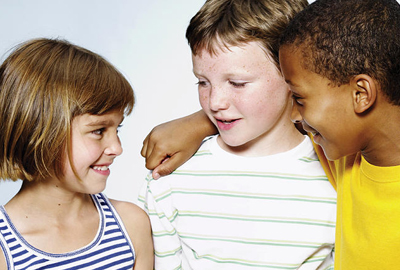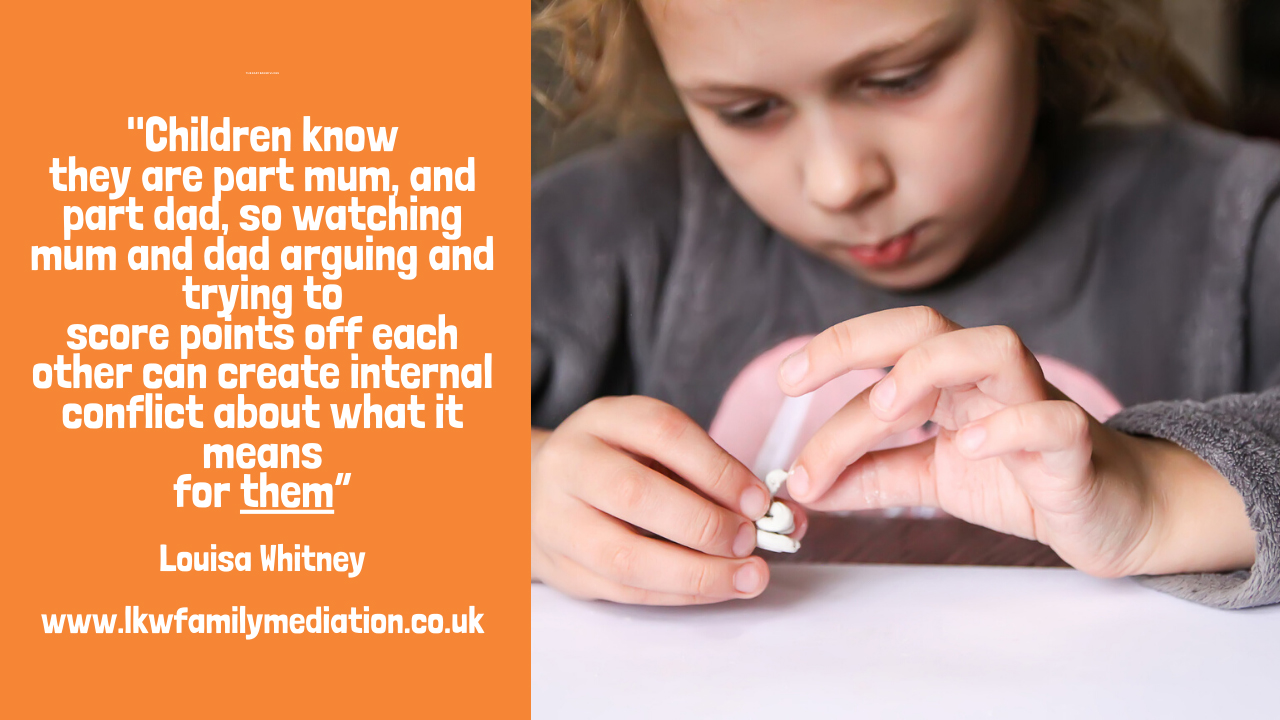In a new series of that will coincide with Family Mediation week we’re giving some top tips. We really do know that those going through a separation struggle to process lots of information when they are feeling emotional and so breaking things down to a simple top 5 tips can be helpful.
You may also find Get the most from a MIAMS helpful.
In this blog we’re sharing our top 5 tips for keeping children out of conflict. Separating parents often tell us in mediation that they just want their children to be happy and that they want to lessen the impact of their separation on their children. But often they’re not sure what the best thing to do is. The priority is to keep children out of conflict as all the studies suggest that it is being exposed to conflict that causes children to be affected by their parents’ separation emotionally, mentally, and sometimes physically.
1. Do your very best not to argue in front of your children. This can be really hard and especially so when you feel you are being deliberately provoked. Children know they are part mum, and part dad, so watching mum and dad arguing and trying to score points off each other can create internal conflict about what it means for them. Children are often alive to much more than their parents realise. They can pick up on atmospheres, body language and moods and they know when things aren’t right. This can mean they then try to listen in more – even when you think they’re doing something else.
2. Talk to your children. This needs to be in an age appropriate way and without laying blame at the other parent’s door. If your children are live to the fact that things are changing then it is better to be up front with them rather than leaving them to imagine what might happen for them. There may be questions you don’t yet know the answers to but it’s OK to explain that you can’t answer a question yet but you will let them know once you have worked it out. It’s also OK to ask them if they have any views. Don’t promise anything you can’t deliver but knowing what’s important to your children, and what they’re concerned about (it might be completely different to what you think) can inform your discussions about what happens next.

3.If you can tell your children you’re separating together then do so. It helps to plan the conversation a little so you know what you want your key messages to be. It can also be helpful to have a clear plan of what you will do after the conversation has taken place – and sometimes having a plan for if your children are upset, and if they’re not so upset can be useful. Children can process things differently and they often ‘puddle jump’ with grief and can be upset one minute and have moved on to something else the next. Having books such as Jack and Black Cat or Mum and Dad glue can be useful too.
4. Keep a close eye on your children for any changes in their behaviour. These can be related to the separation – even if the link isn’t obvious. If you see changes in their behaviour (this might be being more withdrawn, arguing more or being unco-operative or other out of character behaviours) then it can help to have a constructive dialogue with your child’s other parent about whether they are seeing different behaviours too. A chat with your child’s teacher, key worker or form tutor may help to find out if they have noticed changes too, and to find out if there is other support they can access via nursery, school or the local authority (e.g CAMHS). Changes in behaviour can happen immediately, or months (or even years) after the separation. It’s also helpful to reassure your children that they’re loved by both parents, that they are absolutely free to have a relationship with both parents, and that the separation is not their fault (children sometimes think that if they had done X, Y or Z then their parents might not have separated).
5. If you’re struggling to have any constructive conversation then consider getting support at the earliest stage possible. Whatever your situation if you have children together then this will forever be a link between the two of you and you will need to co-parent more effectively somehow. This will then minimise the impact of your separation on your children. Being able to have constructive conversations about issues relating to your children is a must – even if you have to be creative about how you do it. A family mediator can help you to have more constructive conversations and to address difficult issues in a safe and supported space. If either of you feel you are really struggling with managing your emotions then getting therapeutic help from a counsellor, psychotherapist or CBT practitioner can be really useful.
If you’d like more guidance on any aspect of separation then you can visit our online shop.
Other blogs you may find useful:
A simple way to think about co-parenting
Your children and your separation
If you’d like tips and support to help you manage your post separation arrangements as constructively and amicably as possible, then why not sign up to our free mailing list and get them direct to your inbox? You’ll get loads of tips along the way and we tend to only send an email a couple of times a month.
We also have a separate list for for professionals working with separating couples. This includes resources for professionals to share with their clients and details of our forthcoming training workshops and networking events.
If you’re a fan of social media then why not follow us there to get more of the things we share. If you feel able to share our posts so we can help more people then we’d be really grateful. You can find us on Facebook, Twitter, Youtube or Pinterest. You can also find Louisa Whitney on Linkedin or Instagram.

